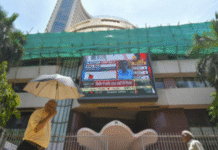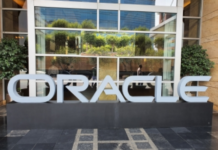WALTHAM, MA – The Massachusetts Life Sciences Center (MLSC) this week announced six new grants totaling $930,000 to Massachusetts companies to support R&D collaborations through the agency’s Universal Partnerships (UP) Program.

“As the global leader in life sciences, Massachusetts has a unique ability to collaborate with organizations in other parts of the world to improve health care through innovation,” said Governor Charlie Baker. “These grants will help our local companies grow, while helping to address medical and patient needs.”
• Akili Interactive Labs (Boston) was granted $190,000 for collaboration with Starlab in Barcelona Spain, a leader in the field of mobile EEG and neurofeedback, and whose Enobio technology is considered state of the art. Akili aims to combine its Interactive Labs cognitive assessment and therapeutic device with a mobile EEG recording headset to develop a product using neural signals to both predict therapeutic efficacy of the device and drive a real-time, mobile-based neurobio feedback intervention. The product is planned to assess and remediate cognitive dysfunction in conditions such as ADHD, ASD, and Alzheimer’s disease.
• DetectoGen (Westborough) was granted $200,000 for their work with the Universidade Federal de Minas Gerais in Brazil, a leading Center for research and treatment of visceral leishmaniasis (VL). Visceral leishmaniasis is a parasitic infection that affects over 1 million people annually worldwide, and is common in many developing countries in Asia and South America, where US military personnel are increasingly exposed to possible infection. DetectoGen is developing a diagnostic to detect the disease using a non invasive, urine-based test.
• LX Medical (Westwood) was granted $70,000 for collaboration with BC Cancer Agency Research Center in Vancouver, Canada. LX Medical is developing a probe device that will enable real time biopsy of lung tissue. This device will increase accuracy of biopsy sampling by using optical coherence tomography and with autofluoresence, thereby enabling earlier detection and treatment especially in early stage lung cancer. The collaboration will focus on biopsy testing in animal models.
• Agile Devices (Cambridge) was granted $100,000 for their work with Agile MV, a company that specializes in catheter-based products in Montreal, Canada. Agile Devices is developing actively steerable microcatheters designed in a suite of sizes to address both peripheral vascular and neurovascular interventions. The new device will reduce the access time to small vessels to improve patient outcomes and lower hospital/physician costs.
• Akrivis Technologies (Salem & Cambridge) was granted $174,705 for collaboration with CEA-Leti in Grenoble France, a leader in nanotechnologies and their applications. Akrivis is developing a sensitive and rapid Point-of-Care diagnostic to detect a range of cardiac markers indicative of Acute Myocardial Infarction (AMI) and of Acute Coronary Syndrome (ACS). The test can be used both in ambulances and physicians’ offices.
• Revolution Biosciences (Boston) was granted $195,000 for their work with Merck Serono in Darmstadt, Germany. Revolution Biosciences is developing a new class of anticancer drugs that target SPRK and thereby the process of splicing messenger RNA specifically to inhibit certain growth factors known to enhance vascularization and tumor growth. The collaboration will allow Revolution to use advanced tools developed by Merck Serono to understand the mechanism and validate their approach.
“These grants will allow Massachusetts companies to partner with organizations from all over the world to solve R&D challenges and deliver innovative new treatments and health technologies,” said Travis McCready, President & CEO of the Massachusetts Life Sciences Center. “I congratulate all the companies that are receiving these awards and look forward to seeing the results of these new collaborations.”
Felicitex, a previously awarded UP grant recipient for its research collaboration with Selvita from Krakow, Poland, has been working on the development of its lead series of small molecule kinase inhibitors for the treatment of highly resistant and aggressive cancers.
“The MLSC UP grant has allowed us to accelerate the progression of the lead series through a focused medicinal chemistry SAR expansion, in vitro pharmacology evaluation towards the identification of the clinical lead candidate, as well as synthesis scale up. Felicitex initiated a mouse xenograft study in Poland in December 2015 and is planning to conduct additional in vivo xenograft studies in the beginning of 2016 in different tumor types such as lung (including EGFR mutants), pancreatic, and prostate. In vivo validation and demonstration of efficacy is critically important for the success of this program and we are grateful for the financial support from MLSC for achievement of this milestone,” said Maria Vilenchik, CEO & Founder of Felicitex. “We are hoping to move our potentially breakthrough clinical lead compound into IND-enabling studies in 2016, and meeting this aggressive timeline would not be possible without the MLSC support.”
“The Universal Partnerships Program is a fantastic initiative which facilitates collaborations which otherwise may not have happened”, said Pawel Przewiezlikowski, the CEO of Poland-based Selvita, which recently announced that they will be locating their US operations in Cambridge, Massachusetts. “Thanks to the UP Program we’ve had a chance to cooperate with Felicitex Therapeutics, working on kinase inhibitors in cancer quiescence, and potentially offering breakthrough oncology therapies. This kind of initiative, and various forms of support offered to life sciences companies, are what make Massachusetts the place where the heart of biotechnology beats –. It’s the spirit of this place, and tremendous support from local life science organizations, such as MLSC, that led Selvita to establish our US operations in Massachusetts earlier this year”.
The MLSC’s Universal Partnerships Program provides grant funding to support Massachusetts companies who are forming R&D collaborations with life sciences organizations throughout the world. The UP Program furthers the MLSC’s efforts to enable scientific and commercial breakthroughs and to fuel economic development in the Commonwealth.














